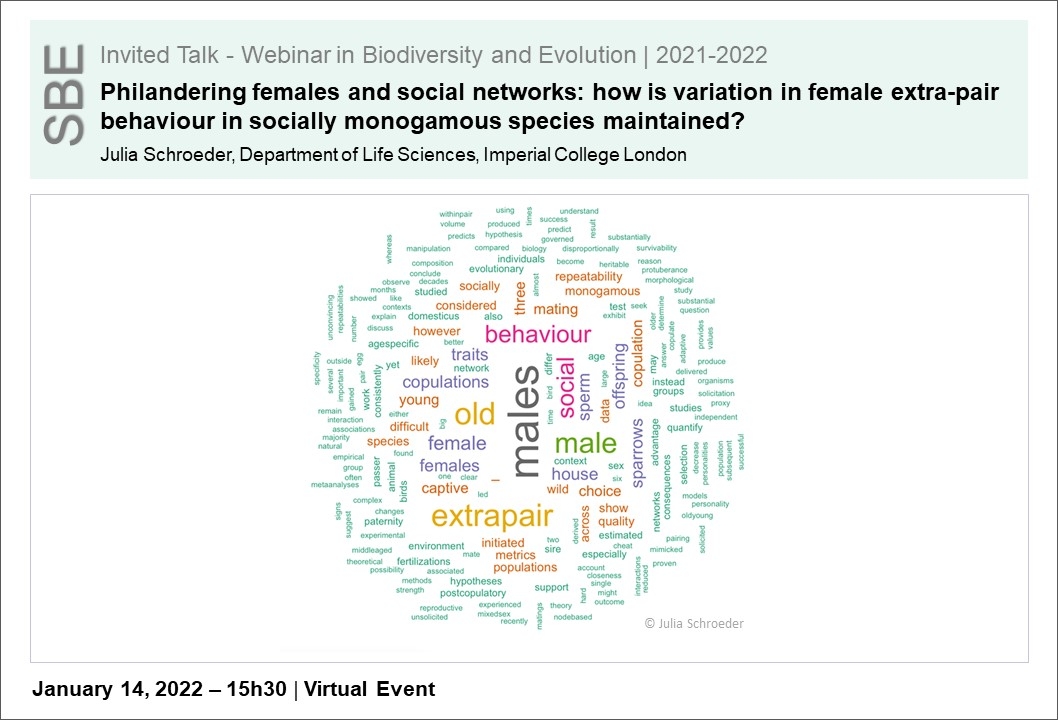Philandering females and social networks: how is variation in female extra-pair behaviour in socially monogamous species maintained?
14 Jan 2022 - Julia Schroeder, Department of Life Sciences, Imperial College London | 15h30

INVITED TALK - WEBINAR IN BIODIVERSITY AND EVOLUTION
Why do females of socially monogamous species cheat? This is a big question in evolutionary biology because the behaviour is seemingly maladaptive. Sexual selection is the theoretical answer, yet after three decades of empirical studies and meta-analyses the data remain unconvincing. Here, I will give an overview of past attempts of answering this questions, disentangle statistical and conceptual issues with it, and present the most recent, novel hypotheses that suggest that the social behaviour in general could be on driving force. I will show our attempts of testing these novel hypotheses, and present a way forward to solve the question of why females of socially monogamous species cheat.
Julia received her PhD in 2010, from the University of Groningen, NL. Her thesis showed how an endangered shorebird species, the black-tailed godwit, managed breeding time and mate choices. She did a Post-doc at the University of Sheffield, where she first encountered the study system of the insular house sparrows of Lundy, her main research system. Here, she focused on her interest in evolutionary biology, senescence, and quantitative genetics, and she was the first to show that having older parents incurred life-time fitness costs. As a Max Planck Research Group Leader, she then complemented her studies on wild sparrows with experiments on the social behavior of sparrows in captivity, enabling her to deliberately manipulate female extra-pair copulation choice. As an academic at Imperial College London since 2015, Julia continues her studies into social behaviour, with an expanding focus on the influence of the social environment.
As a single mother of three, Julia has also spear-headed research into why women in academia tend to accept fewer invitations for giving seminars and invited talks, spurring on the foundation of the equal opportunities committee and fund of the ESEB, which she has chaired for many years until recently.